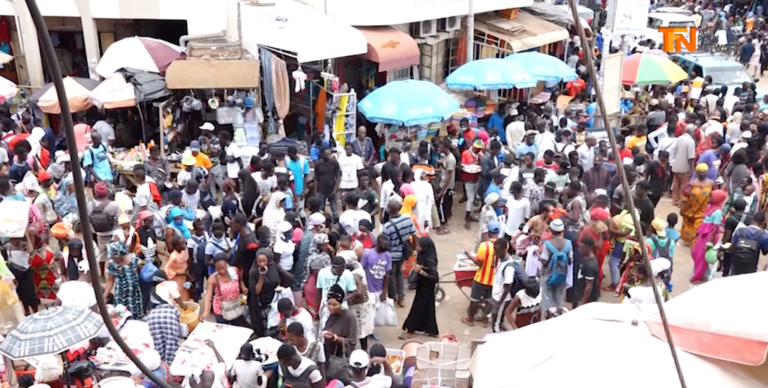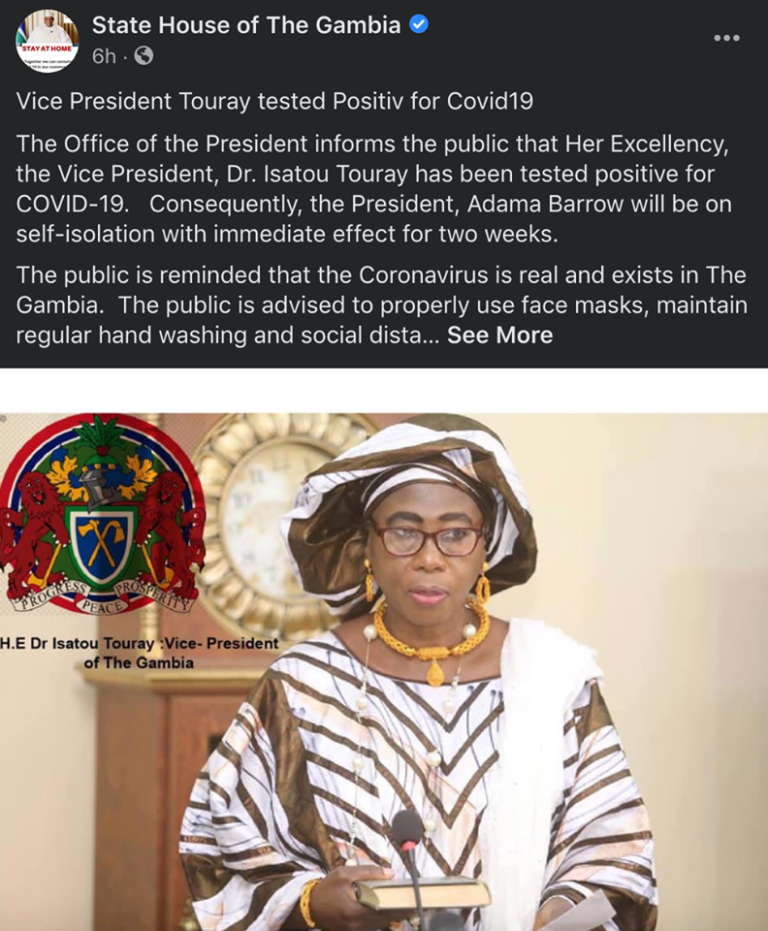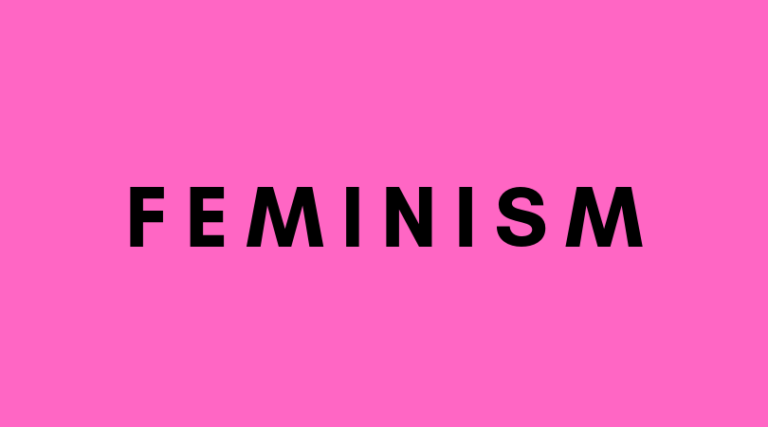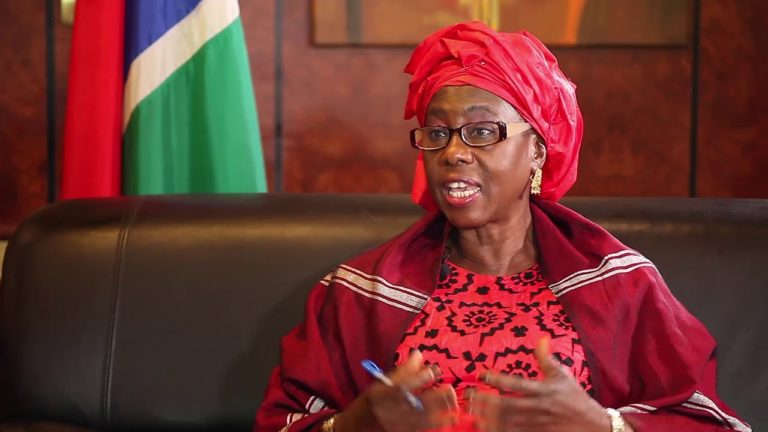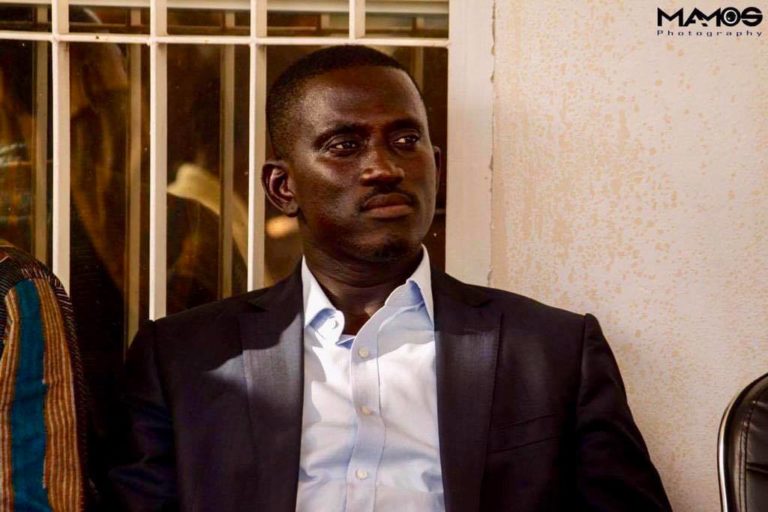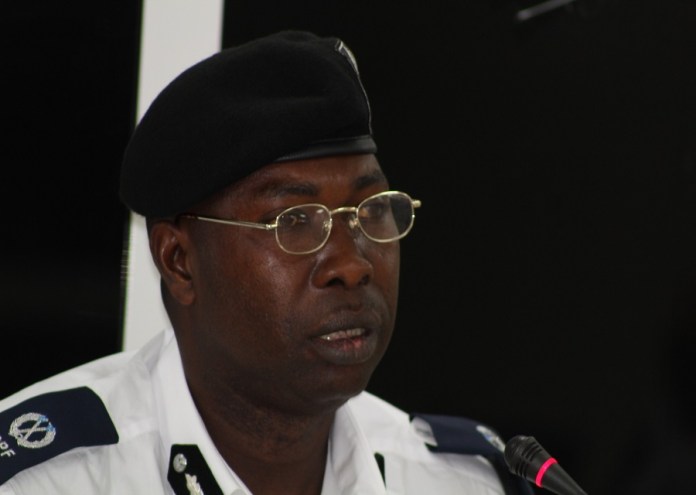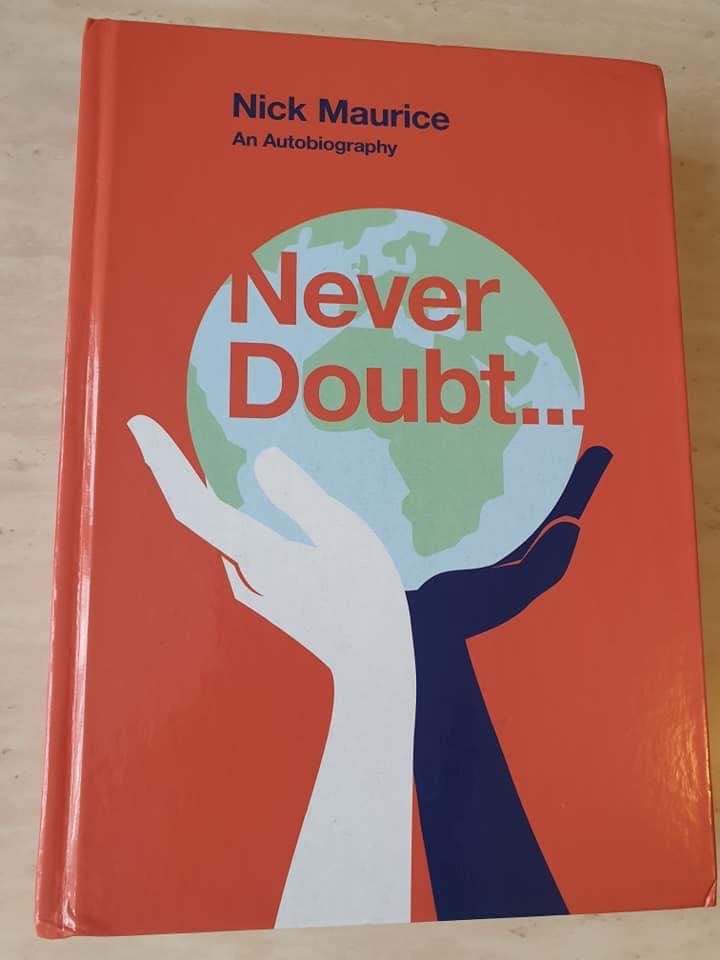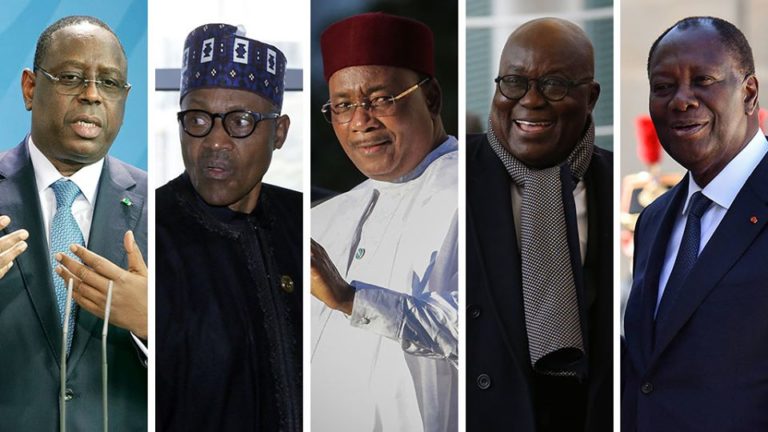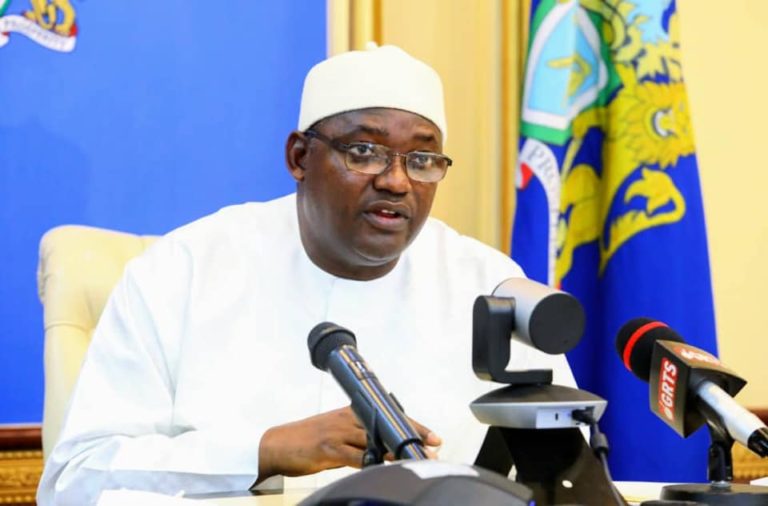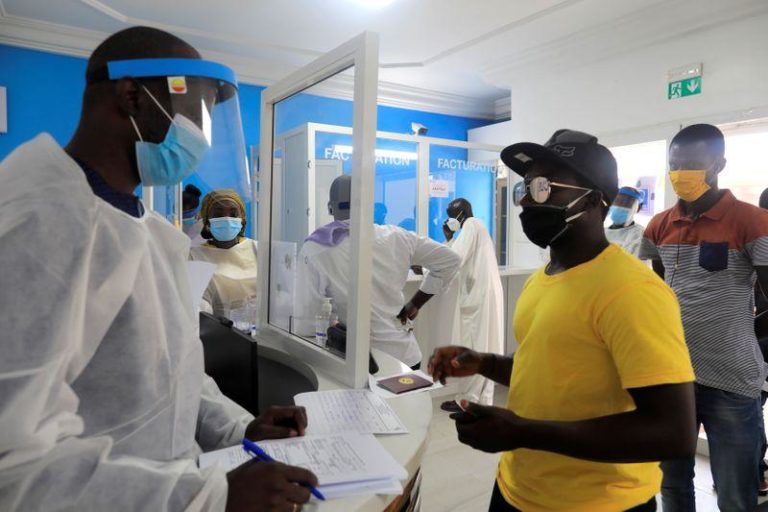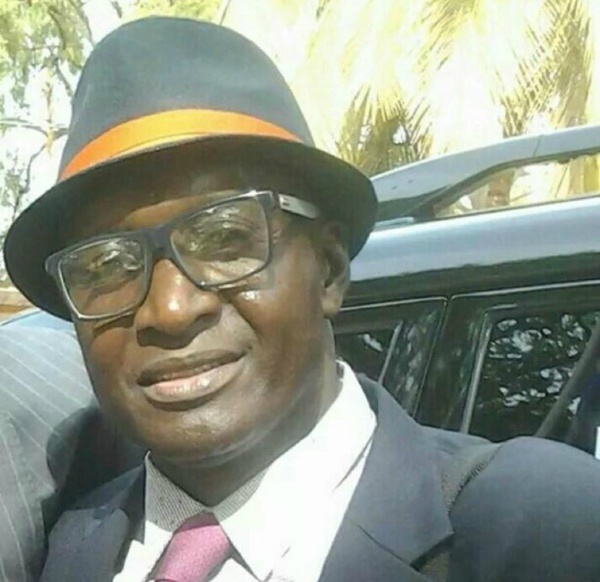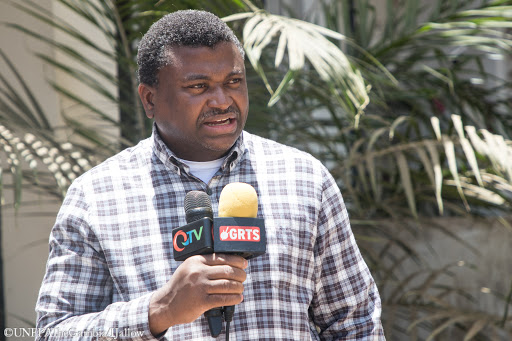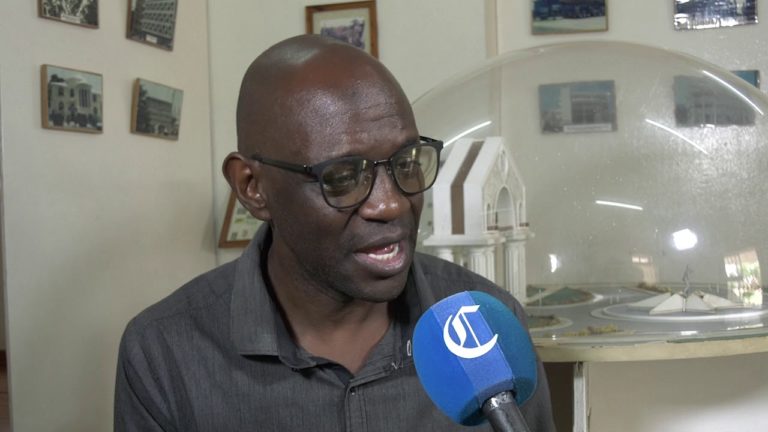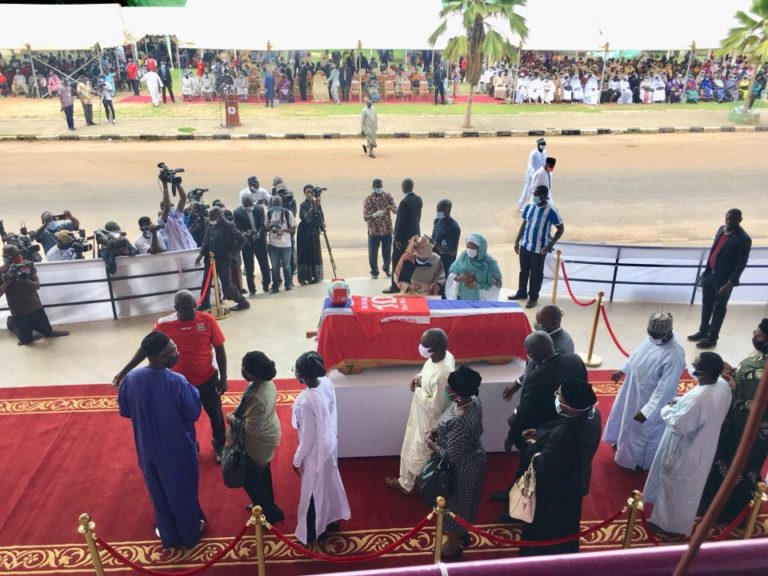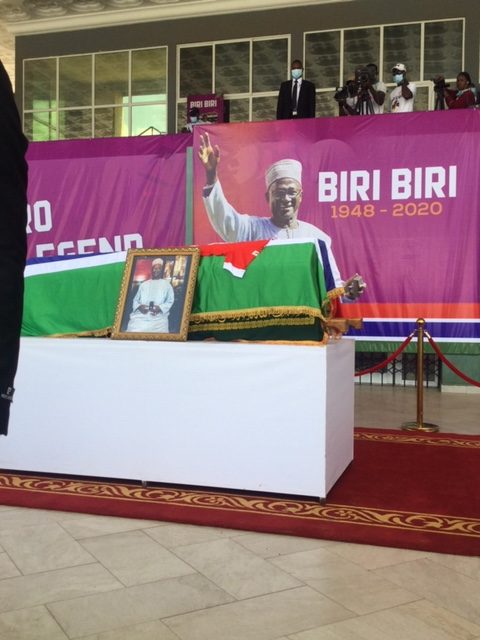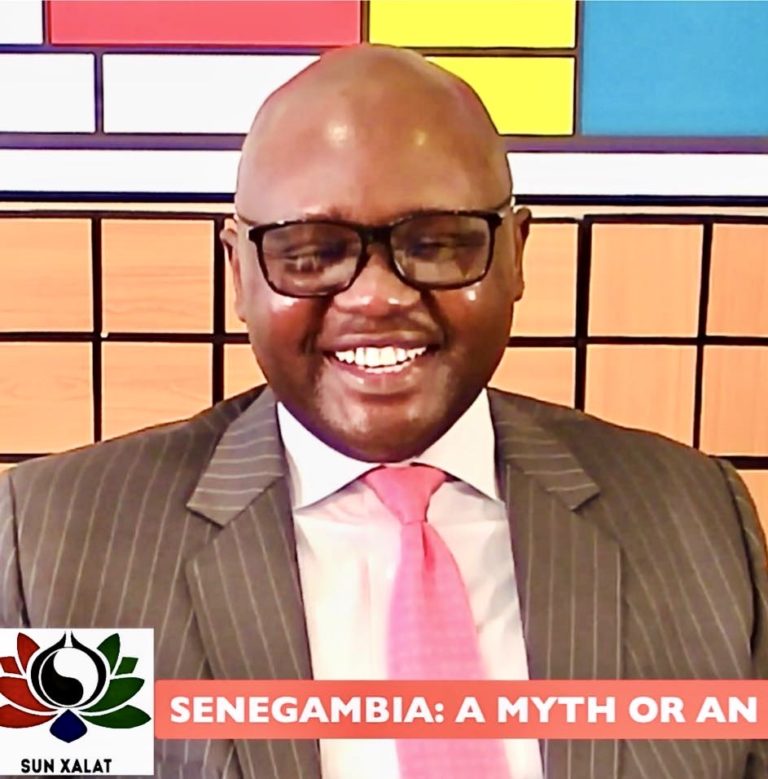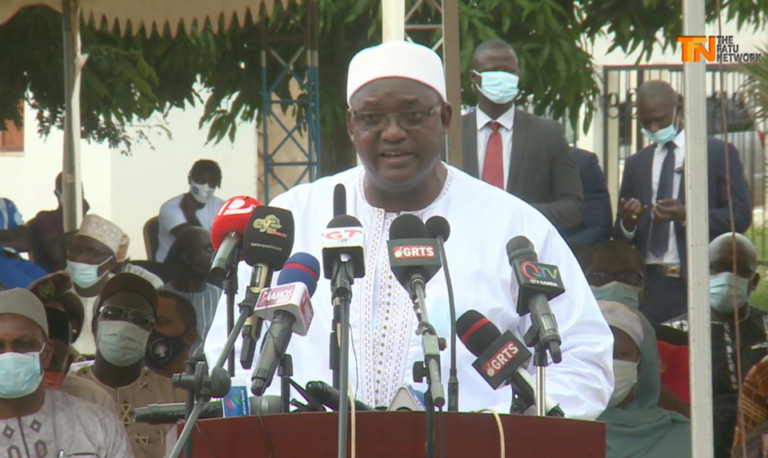SUKAI GAYE – OPINION: Feminism is not a war against men
I see a lot of posts about Feminism and I wonder if there is a misconception, misunderstanding, or misbelief but whatever the case is some of you are missing the point. Feminists don’t hate men, they are not angry, not all feminists are lesbians. There are religious feminists, they believe in marriage and are family-oriented.
If you’ve never taken the time to read about the term but rather run with what you’re being fed by misogynistic people including women (yes, women can be misogynist against women too) then consult uncle Google, Google will give you a simple and comprehensive meaning of the term. And you will understand that Feminism is the belief in the social, economic, and political equality of sexes. Oh, wait! Google is a western platform and feminism is a western ideology used to mislead our women. Sigh!
Well maybe try Auntie Wikipedia. Wiki is just an encyclopedia written by the same people that use it. Meaning you and I can go in there and suggest a change in the meaning of Feminism. But before we do that Wikipedia says “The feminist movement (also known as the women’s movement, or simply feminism) refers to a series of political campaigns for reforms on issues such as reproductive health, domestic violence, maternity leave, equal pay, women’s suffrage, sexual harassment, and sexual violence, all of which fall under the label of feminism and the feminist movement. The movement’s priorities vary among nations and communities and range from opposition to female genital mutilation in one country to opposition to the glass ceiling in another.” Now, do we think any of the issues mentioned are worth fighting against? I think so.
Feminism is not a war against men. Feminists just believe that the world should be gender equal. Treating everyone the same. Creating equal opportunities and resources for all genders. Just like we advocate for treating all races the same. You know, like Black Lives Matter. Women’s Rights Matter too.
According to Oxford Islamic Studies Online, “Islam faith states that in the eyes of God, men and women should be equal and can fulfill the same roles. Therefore, they also are required to complete all the duties of a Muslim worshiper, including the completion of religious traditions, specifically the pilgrimage to Mecca. Islamic culture marked a movement towards liberation and equality for women since prior Arab cultures did not enable women to have such freedoms. Now, women in Islam are even entitled to their own right to land. There is evidence that Muhammad (SAW) asked women for advice and took their thoughts into account, specifically about the Quran. Women could pray with men, take part in commercial interactions, and played a role in education. One of Muhammad’s (SAW) wives, Aisha, played a significant role in medicine, history, and rhetoric. Women, however, did not hold religious titles, but some held political power with their husbands or on their own. The historic role of women in Islam is connected to societal patriarchal ideals, rather than actual ties to the Quran.”
Oh! Oxford Islamic Studies Online, another Western platform? So only Middle Eastern and North African sources, eh? The issue of women in Islam is becoming more prevalent in modern society. In case, you did not know, Middle Eastern and North African Islamic nations, are increasing their creation of economic and employment opportunities for women; compared, to every other region in the world, the Middle East and North African region ranks lowest on economic participation, employment opportunity and the political empowerment of women. These countries got the memo and are taking advantage of women’s participation in all sectors.
If you are worried about Feminism interfering with our traditions, here let me help you… Anyone can be a feminist and still follow traditions. But let us not forget that traditions are just social norms and practices that have persisted for some period. Usually outside and beyond the reach of the law. Traditions are also specific to a society. That does not mean they are right and must be followed. A Gambian man living in the US dares not to marry more than one wife. This may be traditional or “Islamic” in The Gambia, but it is illegal in the US. Another example, In the US, young people are supposed to look at their elders in the eye when talking to them, but it is a sign of disrespect in African society. You and I will agree that following or violating traditions shouldn’t be any penalization but that is subject to society too. Even where we are supposed to follow traditions, anyone deciding not to follow them still respect them. Unless they are harmful traditional practices then there is a problem especially instilled by patriarchy to oppress women. Such as viewing and treating women as sex objects, depriving women of their reproductive health rights, etc. Then, there is a reason for anyone including feminists to be hostile toward those traditions.
Understanding feminism is not too hard. You just have to read a little more and educate yourself. You will get it. When you do, come take part in the actions to ensure an equal world for all genders. Let us create the needed resources for everyone to be successful. Gender equality is a long reach but some of these measures can help, protecting women from sexual abuse/violence, domestic violence, harmful traditional practices, etc. We can also create the possibilities for women to succeed like advocating for equal pay, maternity leave since women are naturally the live givers and a seat at the decision-making tables. Equity is needed to reach equality. It is all to ensure that everyone makes the most of their lives and talents. And I guarantee you that women are equally talented.
Again, feminism is not a gender war. Men can be and are feminists. Whoever believes that feminists are out to get back at men, do not understand the meaning of a feminist or being a feminist. The goal of a feminist is to see a world where equal treatment, opportunities, and resources are accessible to all sexes.
The writer, Sukai Gaye, wrote in from Seattle, Washington.
Breaking news: Vice President Dr Touray tests positive for coronavirus
The Vice President has tested positive for coronavirus, State House confirmed on Wednesday, a day after reports the country’s No. 2 has gone on self-isolation after she came into contact with an official of GIEPA that tested positive for the disease.
State House said in a statement on its official Facebook page: “The Office of the President informs the public that Her Excellency, the Vice President, Dr. Isatou Touray has been tested positive of COVID-19. Consequently, the President, Adama Barrow will be on self-isolation with immediate effect for two weeks.
“The public is reminded that the Coronavirus is real and exists in The Gambia. The public is advised to properly use face masks, maintain regular hand washing and social distancing in the fight against the virus. Stay at home and stay safe.”
The Case for an African Czar at the Global Bazar: Ngozi for WTO
The world has shortchanged women for centuries as we evolve as a human family. While always content to be the foundation for our elevation as a people, women do have much higher potential to contribute to our collective progress than what has been realized.
This situation is by no fault of theirs. Therefore it is about time that the world accorded women their fitting place at the policy table for our collective good. A central role in an organisation well primed to obliterate poverty and improve welfare across continents is the right setting.
It is a well established fact in economics that trade is the optimal tool to improve socio-economic development across nations. Conducted within the right setting and primed with the right incentive mechanisms, trade has no match in its potential to uplift the welfare of the masses. However, the dynamics of global exchange have not always been anchored on the most appropriate pedestal.
In this era of perennial plans and slogans about improving the socio-economic situation of people around the world within the operating guidelines of the United Nations, a rejigging of the global trade dynamics is highly timely. The need to put the global trade policy, and watchdog, body under the leadership of a competent lady with the requisite academic and professional pedigree cannot be gainsaid by any right thinking individual or group.
Having a woman with the foregoing credentials coming from the Continent rightly dubbed the next frontier for our collective quest for global economic progress would just be the right panacea for whatever obstacles that may be impeding higher success in the operations of the World Trade Organisation.
Certainly, the Harvard-trained former World Bank top executive who has already demonstrated her credentials in managing one of the worlds most complex economies, Nigeria, needs no testing for the role of heading the global bazar, the WTO.
Ngozi Okonjo-Iweala has consistently proven her professional mettle and inspired thousands of young aspiring professionals around the world. Granting her the opportunity to lead the World Trade Organisation will not only give her the opportunity to steer the global trade body to higher pedestals for the global common good; it will also empower her to shine the much-needed inspiring guiding light to brighten the trail for other aspiring female professionals whose expertise and creative energy are needed in regional and global bodies.
Momodou Sabally
Former Presidential Affairs Minister, and Budget Director, Momodou Sabally is a macroeconomist with a decade of professional experience at the Central Bank of The Gambia. He has also served as member of the ECOWAS Budget oversight committee, the Committee on Administration and Finance, as well as the erstwhile ECOWAS Task Force for the creation of a roadmap for a common currency in anglophone West Africa.
Coronavirus continues its scary surge as 49 new cases arise – but disease has killed extra two people
The ministry of health said Monday evening 49 new cases of coronavirus have been registered as the total number of cases shot to 326.
The ministry also said two people have died of the virus bringing the fatality number to eight.
The ministry said in its situation report No. 107: “Forty-nine new cases registered, bringing to 326 the total number of COVID-19 cases ever confirmed in the country.
“Two new deaths recorded, bringing the total number of documented COVID-19
related deaths in the country to 8 – a crude case-fatality ratio of 2.5%.
“North Bank East Region – hitherto, the only region which did not register a
case – has registered its first set of COVID-19 cases.”
Breaking news: Top police commander Gorgi Mboob placed on administrative leave as investigation is mounted
By Lamin Njie
ACU chief Gorgi Mboob has been put on administrative leave over claims he attacked 26-year-old Ebrima Sanneh on his genitals.
Mr Mboob is fighting to save his career as a top police officer following allegations he tortured Sanneh while the latter was detained at anti-crime. The incident allegedly happened on Saturday.
The entire police department have also come under fire after a statement astonishingly rubbished that an attack has taken place. Police chief in an interview with an online platform on Sunday said he asked the police spokesman to put out the statement that absolved Mboob of any wrongdoing.
The issue has now taken a dramatic twist as it has emerged Mboob has been suspended amid an investigation.
Police spokesman Lamin Njie (not the author of this story) told The Fatu Network: “Yes we can confirm [his supension], and an investigation has been constituted to look into the allegations.”
The Fatu Network understands the investigation panel comprise members of the national human rights commission, the bar association, as well as the police.
SAINEY DARBOE – BOOK REVIEW: ‘Never doubt…’
From the title of the book,’Never Doubt’…one might be forgiven for nurturing aspirations of living by its meaning.
But the experiences of the man who co-founded Gunjur-Marlborough link as narrated in his 432 page autobiography do not exactly bring the opposite of doubt to mind.
Born in the small town of Marlborough from a long line of doctors who made it to Guinness Book of records, the younger Nick Maurice made choices that would have filled lesser people with doubt and even question his sanity.
Through his work, he would go on to serve as director of Commonwealth organization Building International Links for Development(BUILD), getting awarded OBE by Her Majesty Queen Elizabeth and building close relationships with anti-apartheid heroes like Desmond Tutu and Joel Joffe who was part of defense team for Nelson Mandela at the Rivonia trial, among others.
But it’s not always been smooth-sailing for Nick Maurice. He was sent to boarding school at the age of 8 away from his parents with accompanying consequences.
Young Nick was a reluctant pupil and would hang onto the railings in his bid to avoid going to school. His fingers had to be pried loose to take him to school.
At the age of 14, he was victim of abuse that impacted his personal development. His Housemaster Billy Lamb who was engaged to a dame commenced touching him inappropriately to satisfy his desires.
The other students, he found out, were undergoing a similar experience. The behavior was reported to authorities. The perpetrator Mr. Lamb would shoot himself and his dog to death to avoid the rigors of justice. However, Nick looks back on the experience without any lingering bitterness.
“I can honestly say that I don’t think it had any measurable impact on me and would suggest that this was because firstly, I didn’t at the time appreciate that there was anything wrong in what was being done to me, after all he was my respected Housemaster…”,he wrote of the experience while wondering whether with all the publicity and feverish interest in such cases nowadays we should not ask the question about the possible impact of that publicity on the victims of abuse.
Though he felt compelled to follow in his father’s footsteps in medical practice, Nick’s academic record was by no means stellar. He failed three ‘A’ levels in Physics, Chemistry and Biology which he took at his father’s instruction. This disappointment would have put the kibosh on academic aspirations for lesser-willed people. But Nick moved on from failure to failure without losing enthusiasm which would eventually pay off.
At the age of 18, he would work for a year with Voluntary Service Overseas in Sokode in Togo. His services as an unqualified teacher were extremely valued by the community and he made lasting friendships. He stayed in the compound of a local chief whose generosity he was grateful for, but disapproved of his use of corporal punishment by caining his kids for infractions.
During his stint, he had an opportunity to meet the first president of Togo Christopher Olympio who was later assasinated. On 13 January 1963 Olympio was overthrown and killed in a coup d’état led by army non-commissioned officers dissatisfied with conditions following their discharge from the French army.
Upon return home, he would get into college and start medical training which he left with one year to go in order to work as a volunteer in Papua New Guinea.
Working in and from mount Hagen hospital in PNG in the Western Highlands where he helped the sick while accumulating hands-on medical experience is an experience he found fulfilling. He would make similar trips to Nepal through Britain Nepal Medical Trust,Cambodia and Calais.
His return to Marlborough in 1980 would coincide with the publication of the Brandt report ‘North-South-A Programme for Survival’, led by the charismatic former chancellor of West Germany.
The Brandt report sought to address the widening disparity in wealth between the so-called ‘rich North’ and ‘poor South’. This would lead to the birth of Gunjur Marlborough link in 1982 which involved exchange of people.
In almost forty years of friendship, hundreds of people have exchanged visits between the two communities with lasting impacts in key development areas like education, health and women’s empowerment, among others.
The mutual exchange of people has hit a substantial snag with difficulties of getting visas for young people from Gunjur due to changes in U.K. immigration law.
But Nick continues to work assiduously in collaborating with partners to enhance development in Gunjur.In his characteristic humility and Septuagenarian wisdom, he insists the collaboration with Gunjur is not entirely altruistic nor is it one-way, because both communities benefit from the link.
The autobiography ‘Never Doubt…’ makes for an interesting and inspiring read that oscillates wildly between haha funny to harrowing; with depiction of grim manifestations of human suffering and triumph all at once.
Sainey Darboe is a US-based Gambian journalist and former editor of The Standard.
West African leaders start virtual summit on Mali crisis
By CGTN Africa
West African leaders kicked off a virtual summit on Mali’s deepening political crisis on Monday, officials said, after two efforts at mediation this month ended inconclusively.
Presidents of the 15-nation Economic Community of West African States (ECOWAS), of which Mali is a member, are discussing ways to defuse tensions between the opposition and President Ibrahim Boubacar Keita.
“The meeting has started,” a source close to ECOWAS said. A source close to the Malian president confirmed that the talks had begun.
Anti-Keita protests on July 10 spiralled into clashes, leaving 11 dead in the worst bout of political unrest Mali has seen in years.
Keita has been in power since 2013, winning elections in which he posed as national saviour in the face of a regional rebellion.
Since then, the country’s problems have escalated, and anger is flaring.
LAMIN NJIE – COMMENT: The president is operating cluelessly about Covid-19… the proof is in lifting of the state of emergency
This is the moment for you to understand President Barrow and his government are clueless about how to deal with the coronavirus pandemic.
Since March, when this crisis began, this government has received a considerable amount of criticism for the way and manner it is handling the crisis. If not for the dithering for it to close the country’s borders, it is for the healthcare workers getting disaffected because they’re not given all the support or even the terribly executed lockdowns.
The situation has now gotten to scary extent. Daily cases continue to be in the double digits, with doctors and nurses getting infected left, right and centre. It’s all becoming really messed up, and something serious needs doing to prevent coronavirus from running us down.
There have been too many missteps in our coronavirus fightback but the most ridiculous is the lifting of the state of public emergency by the president. If you ask me, it doesn’t make sense.
There is no effort needed for one to know lockdown is one of the best ways to slow a spread of coronavirus. With this, I mean well-implemented lockdowns, not the jumbled ones carried out by our president.
In State House’s statement on Friday, the president scrapped the state of emergency after consultation with health experts and the Cabinet Sub-Committee on Covid-19.
But someone appears not serious here. The president is saying he walked back the SoPE after consulting the health experts – the very same experts who on a daily basis are baying for ‘stringent’ lockdown measures. Just check the experts’ daily situation reports and you will see lockdown is actually No. 1 on their list of recommendations.
Our flailing healthcare system risks collapsing if the country should register a certain high number of cases. And given the fast-and-furious way and manner the virus is spreading, it will only require a well-implemented lockdown.
Senegal strengthens coronavirus testing for travellers
Senegal is strengthening its coronavirus testing capacity to enable travellers to get tested before leaving the country, and testing those arriving in the West African state.
Senegal, which depends on tourism for around 4% of GDP, has reported 9,422 cases since the outbreak, with 182 deaths.
It lifted a ban on international flights from July 15 but said it will apply the principle of reciprocity to travellers from countries that do not allow citizens from Senegal.
Around 1.7 million people holidayed in Senegal in 2019.
The health ministry has accredited four testing centres in the capital Dakar, from only one at the onset of the outbreak, to test travellers. It plans to expand testing in other major towns.
Papa Alassane Diaw, who manages the IRESSEF lab in Dakar, told Reuters on Friday that their two labs, one close to the airport, had the capacity to carry out 2,000 tests per day, but the labs were currently testing around 100 to 150 every day.
“This centre is a health ministry station. It wanted it for travellers flying out of the country because a lot of countries require a COVID-19 test before entering their territory.” Diaw said,
Senegal has carried out around 104,495 tests so far since the outbreak in March.
SAMSUDEEN SARR – COMMENT: UN chief condemns! Is Mali the first ‘African Spring?’
I wonder how many people have heard the condemnatory speech recently uttered by the UN Secretary General Antonio Guterres on July 17, 2020 in South Africa on the celebration of Mandela’s International day where he hit several rough nerves among advocates of global capitalism, virtually denouncing the system as “our embraced economic order” that has failed the hopes and aspirations of the overwhelming majority of mankind in favor of a few. In his blunt criticism of its disproportionate distribution of global resources and opportunities that favors a tiny minority over the rest of humanity, he bemoaned the lack of conscience and empathy behind what he underscored as the 26 richest people in the world insatiably controlling more wealth than the 3.8 billion commoners constituting half the population of the earth. The secretary general went on to highlight our betrayed trust in the system which has been laid bare by the economic fallout from the COVID-19 pandemic affecting mostly those working in the informal economy (the Gambia ‘rabaraba’ work force, namely). That in its wake, while the disease has brought us the deepest recession since World-War 11 and the broadest collapse in income since 1870, a tiny number of billionaires and millionaires still enjoy better health care, live safer and are hardly affected by its high infection and mortality rate.
Mr. Guterres didn’t only decry the problem as an unsustainable-vicious system that is projected to push one-hundred-million more people into extreme poverty but further described how it may engender famine of historic proportion. He illustrated what he analyzed to be a fragile world now, “exposing our fallacies and falsehoods everywhere” coupled with the misconception that free markets can ascertain healthcare for everybody or the delusion that the human race had permanently eradicated global racism. He no longer believes in the myth that we are all in the same boat and suggested the adoption of urgent remedies to improve the status quo.
Plus in symmetry to what worsens the phenomenon, he illustrates the inherent and pervasive corruption organic to most or all capitalist institutions, more harmful in political establishments.
His message has not augured well with scholars and elites convinced of the perfection of capitalism over any universal economic system that is believed to be grounded on the objective of fulfilling human salvation and therefore should be spared all such kind of ‘extremist criticisms’.
Some are even calling for his resignation from the world body for such utterance, while others attack the whole UN organization for its failures, incompetence or uselessness and the need to even defund it.
President Donald Trump reelected for a second term will be thrilled with the guaranteed support of England’s Boris Johnson and some other xenophobic world leaders to see the disintegration of the organization.
S.G. Guterres is now likened to American presidential aspirant Senator Bernie Sanders for his “far-left viewpoints” rooted on socialist and communist ideologies. Remember Senator Bernie Sander’s catchphrase in the wretchedness of the 400 richest Americans having more money than the combined wealth owned by the rest of the 329 million US population while citizens unnecessarily die of curable diseases for lack of affordable healthcare, the best education opportunities earmarked for the richest, the unjustifiable homelessness everywhere and all other itemized calamities? The Senator never hesitates to particularize the ugliest idiosyncrasies of capitalism
As much as I will never subscribe to the notion of substituting capitalism with socialism, the only alternative economic system we know, I think the UN Chief diplomat has a legitimate point in calling for radical reformation of the bias Western system.
However, thanks to communism the Chinese have undeniably lifted millions of their people from abject poverty and ignorance into world-class sophistication within record-breaking time; nevertheless the kind of society they reign-over has ever tailored policies primarily favorable to members of the communist party founded since 1921.
And I see no difference warranting the hypocritical hullabaloo over how the 1.3 million Rohingya Muslims persecuted in Myanmar from how the 12 million Uyghur Muslims mainly in China’s Xinjiang province are genocidally encamped and sterilized. Hey, why is the UN Human rights or Genocide prevention commission mute about this problem in China? Where the heck are the Arabs who funded the Myanmar case? I think Ba Tambadou is still available with ample experience to burst the Chinese? Don’t you think so?
To me, the Chinese situation is unsustainable and will ultimately implode sooner or later. Hence, it was capitalism yesterday, capitalism today and certainly capitalism tomorrow but with much anticipated difference.
I can however remember how similar aspersions were cast on Mr. Guterres when in his inaugural speech soon after his assumption of the position of UN Secretary General in January 2017, warned the superpowers to stop inciting, funding and waging wars that are nowadays all reckless and not winnable, epitomized by the protracted debacles in Afghanistan, Iraq, Libya and Syria. To the billionaires always hitting jackpots in the manufacture and sale of weaponry, the secretary general for saying so had become an existential threat to their global market and “Wall Street” stocks. The war in Yemen was only two years old from their incitement and prolongation where American and British weapon dealers were pocketing trillions of dollars from weapon sale to oil-rich Saudi Arabia spearheading the genocide in Yemen.
By extension, while outgoing Secretary General Ban-Ki Moon was in total support of France and Senegal committed to invade the Gambia and forcefully oust the APRC government in 2017, Mr. Antonio Guterres throughout opposed and tried to discourage the military adventurism of settling the Gambian electoral dispute by war. Thank God, President Jammeh averted the disaster by yielding to reasoning. Though weapons profiteers had lost a regrettable opportunity in the failure of an “imminent” war falsely outlined as a mission to go and kill or flush out MFDC and Charles Taylor’s rebels out of the subversive Gambia Armed Forces. Yes, I like Mr. Antonio Guterres.
Still on a related reasoning, I see a broader picture painted by the secretary general from the harmful impact of the pandemic affecting all of us in a way that should concern all governments. Will America and Europe continue to be what they used to be after this crisis? The hub of global capitalism with all its adverse effects on the downtrodden being quickly normalized again? I don’t think so. But I also don’t think there is any wizard capable of giving us a precise or accurate prediction of how things will turn out to be in the future.
Governments seem to be merely pretending as if they are in control or in command of their sense of direction but considering all their erratic behaviors I see them as mere bluffs. None of them know what tomorrow holds for humanity.
The European Union after an abnormal emergency session this week, agreed on a borrowed stimulus package of 850 billion Euros to cushion the crash of their free falling economies expected to soon put their work forces into deep recession.
I also saw the French foreign minister Jean-Yves Le Drian in Lebanon invited to discuss and try to see how to help solve the problem of the Arab nation speedily running out of raw cash. But the Frenchman didn’t sound too honest to me for not telling them that France doesn’t have enough or extras to offer needy nations; but in a classic bluff, warned them to first start from stopping the prevalent corruption by their politicians.
That should be an awakening message to most African countries totally dependent on foreign aid to keep the wheels of their economic engines turning, especially Francophone African nations paying France, $500 billion dollars annually on a stupid colonial agreement that will now be utilized to rescue French citizens but not Senegalese, Malians, Ivorians, Gabonese or all the other slavish French loyalists in the continent.
Not knowing or having any alternative plans to what the Neo-Colonial masters offer them, leaves these nations vulnerable to internal civil unrest that may bring down most governments.
It will be very unlikely for France or the French foreign minister Drian to advice African politicians to start fighting corruption in their governments for obvious reasons. They have indeed been clandestinely encouraging it, although the people are rapidly being educated through social media about the greed and crookedness among these corrupt leaders.
Mali is currently facing an unprecedented backlash caused by corrupt politicians in an unprecedented manner that has certainly scared the devil out of the leaders of ECOWAS who may also be the next to deal with their fed up population. President Macky Sall of Senegal is for the first time asking international creditors to cancel Africa’s foreign debts as the only way out.
This may actually be the beginning of “The African Spring” when corrupt leaders will have to give way to honest heads of state. Otherwise our floating African boat will sink in the high seas with irreversible ramifications.
Europeans will not want to be too concerned with the corruption of African leaders, factoring the $50 billion dollars they steal every year from their people and hide it in their banks and never in African banks. Of course, such amount of wealth cannot be safely hidden in African banks, lest the word goes around from employees to the tinniest villages on how Hadim Dakar got rich so quick from his monthly income. Hence the Europeans and Americans often show them all the tricks on how to hide these stolen national wealths in their banks or at other offshore depositories not traceable by anyone other than the depositors and perhaps discreet middle persons working for the banks. Sadly, the majority of these rogues often die losing all their stolen money hoarded in European and American financial establishments like in the cases of Mobutu and Abacha.
The stoppage of this unconscionable racketeering must be prioritized among all post “African Spring” governments better fashioned on zero tolerance to corruption, like Singapore did long ago to achieve their enviable economic success.
On a final note, I wish to declare my full support to the “African Spring” in the same way I support Secretary General Guterres’ call for a better world or a better monetary system devoid of senseless greed and corruption or unchecked exploitation of the underprivileged masses and the colored races.
Thanks for reading.
Samsudeen Sarr
Banjul, The Gambia.
Breaking: Coronavirus kills sixth person as staggering 46 new cases take total to 216
A sixth person has died from coronavirus as the nation’s cases jumped to 216 following the discovery of 46 new cases.
The ministry of health said in its situation report No. 105 on Friday: “One new death recorded, bringing to 6 the total number of COVID-19 related deaths reported – this represents a crude case fatality rate of 2.8%.
“Forty-six new cases registered – the highest reported in a single day – bringing to 216 the total number of COVID-19 cases ever confirmed in the country.”
The steep rise came as State House announced President Barrow was lifting the state of public emergency.
HASSOUM CEESAY – COMMENTARY: ‘I fear being managed out and eliminated and my opinions suppressed’, E.F Small, Gambian Patriot
By Hassoum Ceesay, Historian, the Gambia National Museum
Recently, I spent a few hours at the archives and I was intrigued by a small article tucked away on page 2 of a 1958 copy of The Gambia Echo on a very momentous event in Gambian media history been a reported encounter between our foremost patriot, First Gambian Elected Member, and crusading journalist, Mr. E.F Small, OBE(1890-1958), and The Gambian’s first millionaire Sarkis Madi, died 1962. The story tells me that Small was indeed a man of great character, a fierce patriot and a redoubtable defender of the rights of Gambian free expression.
In 1922, Small had founded The Gambia Outlook and Senegambia Reporter as the first newspaper in Bathurst for close to 40 years. Since the folding up of The Bathurst Observer in 1883, Gambians had no newspaper to read, and write about the ills and glory of their country.
Desperate patriots like Hamilton Joiner and Njai-Gomez resorted to printing their thoughts on the state of the polity in pamphlets for free distribution at the MaCcarthy Square. Nana Grey Johnson has ably written about his ‘era of pamphleteering ‘in his magnum opus, The Story of The Gambian Newspaper(2000).
Small wanted to end this hiatus in free expression and founded his newspaper even though he well knew that he could not print it in Bathurst because the Government Printer would never print for him. Small therefore registered his newspaper in The Gambia, in Senegal and in the UK. He will edit it in Bathurst, print in Rufisque, Senegal, distribute in Bathurst and in UK! This was Small’s earnest patriotism!
But I must digress a bit here and explain Small’s view of Senegal. He saw The Gambia and Senegal as one people cut into two by the 1888-1894 French-Anglo Boundary Commission. He saw and believed in Senegambia, a whole polity from the River Senegal to the River Cacheu inhabited by the same people, sharing languages and cultures and civilizations. Small did not allow himself to be hampered by the colonial boundaries. In Rufsique, Senegal, he had friends like Galandou Diouf(1875-1941); like Small, he was the First Elected Member to the French Assembly from West Africa. Diouf helped Small to get a printer in Rufisque.
Printing in Senegal soon proved a heavy financial burden to Small. He spent money he could not recoup due to refusal by the Colonial Government to advertise in his newspaper as it was seen as anti-government. In fact, certain colonial Governors in Bathurst like Sir Cecil Armitage even wrote a Circular to all Civil Servants encouraging them not to buy The Gambia Outlook and Senegambia Reporter. Small soon felt into serious debts to keep his newspaper afloat.
One of his staff reporters, Hamilton Joiner, knew about his boss’ financial woes and approached the richest Gambian at the time, Sarkis Madi, father of John Madi(1913-1965), Gambian nationalist leader and merchant. Joiner told Sarkis to intervene to rescue Small and his newspaper.
In June 1926, Sarkis offered Small a loan of 1000 Pounds Sterling( over 60,000 Pounds Sterling in 2020 money). The condition was that Sarkis will not interfere in the editorial line of the paper or try to influence it in any way or take part in any editorial production. But Sarkis will buy and manage the press for the newspaper to ensure payment of staff writers, journalists, pay for newsprint and pay Small a salary until the loan is paid and then Small can take back the business.
Small’s reply to this offer is indeed telling of a great Gambian patriot. He told Sarkis ‘When a capitalist like you begins by managing a paper, it always invariably ends in the original Editor and Founder like myself being managed out and eliminated and his opinions suppressed, and whatever influence he had withers away. To me, I regard my newspaper The Gambia Outlook as a sacred trust on behalf of my people, wherein I give voice to the poor, the oppressed and the underdogs in Gambian society. It would be a betrayal of that Trust if I were to part with the control of the paper’.
There the negotiations ended. Small, Joiner and Sarkis made a Gentlemen’s Agreement never to reveal this project. It was on Small funeral day in January 1958, that Joiner, out of journalistic itch, revealed the story after keeping it under wraps for 23 years.
The Gambia Press Union could have a prize named after Small, a stout and unyielding defender of Gambian journalism and free speech!
MALI: Macky Sall and four fellow Ecowas leaders are activated for end to political crisis
By CGTN Africa
Presidents from five West African countries arrive in Mali on Thursday to try to negotiate an end to a political crisis that has rocked the country and raised fears it could undermine a regional fight against Islamist militants.
Infuriated by corruption, disputed local election results and army losses to jihadists, tens of thousands of people have taken to the streets, sparking clashes with police in which the United Nations says at least 14 protesters have died this month.
The opposition, a group called M5-RFP whose figurehead is Saudi-trained Muslim cleric Mahmoud Dicko, has said it will not quit until President Ibrahim Boubacar Keita steps down, raising concerns in neighbouring countries of a protracted crisis.
“M5-RFP demands the resignation of Keita or the satisfaction of our demands,” which include the establishment of a committee of inquiry into civilian deaths and a transitional government, the group’s spokesman Nouhoum Togo told Reuters on Thursday.
The leaders of Nigeria, Ivory Coast, Senegal, Ghana and Niger will meet with Keita and then Dicko and other opposition leaders at a hotel in the capital Bamako, according to the mission schedule.
The leaders are expected to make a statement before departing early in the evening.
SAMSUDEEN SARR – TRIBUTE: Tribute to Biri and Imam Barham – could it be the rampage of COVID-19
Wednesday, July 22, 2020, marked a somber day in the Gambia that I feel obliged to share this tribute about these fallen heroes. Two prominent and iconic senior citizens closely associated with my generation and have been my very close friends will be laid to rest after suddenly passing away. Alhagie Momodou Biri Njie the most outstanding football or soccer player Gambia has ever had and Alhagie Barham Jobe, the special Imam Ratib of Serekunda were two friends I grew up closely monitoring their achievements and special contributions to the Gambia and their families.
Long ago after hearing about Biri being a national rising football star, I still remember first meeting him one afternoon during a football tournament at Serekuda School. Suddenly, everybody was magnetized to the famous “guy from Banjul” known only as Biri, proudly being followed by fans while he walked majestically in his unique staggering steps and gaiety smile. You could see how happy he was when a ball was passed to him for a quick demonstration of his unique skills. What stuck most in my mind however was not his spectacular joggling skills which few player could do then, but the hot shot he took outside the 18 yards-penalty box to drill the supersonic-speedy ball into the back of the net that the goalkeeper safely avoided.
Since that day, I can’t keep count of the numerous times I watched the superstar played local and international matches, mostly at “Boxbar Stadium”. Biri, like one Senegalese sports commentator paying tribute to him said, was comparable to stars like Sheriff Sulayman and Peuti Sorie of Guinea and other West African great players; but to me I think he fitted within the ranks of the best in the world, like even Pele of Brazil.
Footballers were and are still known for the special position they played best until you watched Biri flawlessly play every position in the field except goalkeeping. In the field, he played to win as if his life depended on it. He wasn’t much celebrated during his best days and in fact was often denigrated for his low standard of formal education and would have perhaps faded like most of his peers had he not been discovered by foreign visiting teams in the early 70s. That is when the world got to know about the Gambian jewel and when he was utilized and exhibited in the global stage to the maximum. But by then he was relatively older and had lost a good part of his youthful vigor commonly at its peak between the ages of 18 and 30 years.
In an interview he conducted in 2017, somewhere in Europe, he lamented over the unrecognized sacrifices he rendered to the Gambia in his prime days when he used to do what ever necessary to leave his European teams and flew to the Gambia to play for the national squad on his own sponsorship.
After the 1994 coup, he used to call me Captain without the Sarr and we became closer especially after President Yaya Jammeh recognized his past legacy as a devoted nationalist with an international reputation reserved for the best and appointed him deputy mayor of Banjul, a position he throughout appreciated. He also staunchly believed in President Jammeh and the APRC government to the last day. It’s just the fact.
I once reminded him of a goal he scored against Guinea Conakry in a Zone Two tournament at Boxbar in the 70s which he punch into the net with his fist that looked like a header. Much similar to Diego Maradona’s “hand of God” goal scored against England in the FIFA world cup game of 1986 between England and Argentina. Biri’s goal also counted despite goalkeeper Camara’s protest who saw the handball.
But like I said, Birri was an attacker, a winger, a midfielder and the best defender ever, if he chose to be. I have watched him play all positions and was just a gifted fellow. I wish I was not on quarantine to attend the funeral of such a Gambian paragon and a very good friend of mind. May his soul rest in perfect peace.
Imam Alhagie Barham Jobe’s funeral was on Wednesday morning as well. He was very young when his family came to settle in Serekunda and they had a compound on the road to Serekunda school which was a Quranic school (Dara) as well. Nonetheless the young Barham, the eldest son in the family, spent all his youthful life taking care of his family by harvesting and selling seasonal wild fruits. The way he supported his family when we were ordinary boys living under the care of our parents, illustrated the character of an honest, self-reliant and extremely hardworking person. I used to wonder how he managed his time to study the Quran which he once confessed was mostly done at night after finishing all his daily chores.
At sixty-nine I think he could have lived much longer but may the Almighty Allah receive him in the best place of Janna.
Having said that, I will add few lines of concern over the unusual high rate of elderly Gambians suddenly dying in the wake of the coronavirus pandemic. Mr. Tombong Saidy yesterday wrote a brilliant paper on his Facebook page about how real the global disease is but also how Gambians are not yet treating it with the seriousness it deserve.
I commented on the article explaining how I wrote extensively on the same topic while in New York City.
Coming to Gambia, I see a nation and people still behaving as if the pandemic doesn’t exist at all. The guards at our quarantine hotel are constantly congregating to drink ataya with no face masks or social distancing. They are of course young and can be among the majority of asymptomatic carriers who have been identified as the most infectious. And it is the elderly, the obese and those with preexisting health conditions who are most vulnerable to the disease.
Moreover, instead of testing the elderly and sickly after suddenly dying, Gambians often rationalize their deaths by generally branding them “too old”, “too sickly” or “their time being up”.
Biri at 73, Barham Jobe at 69, Mbat Jobe 70 another iconic national basketball player, Alhagie Mdanding Drammeh of the Supreme Islamic Council and many more senior citizens are dying at unprecedented suddenness and frequency.
As a result, I can’t rule out the probability of the widespread death rate from the ruinous effects of COVID-19 among the elderly worldwide wrecking the same havoc on older Gambian men and women. Social distancing doesn’t exist in the country and few respect the basic protocol of wearing gloves, face masks and maintaining proper hygiene. Markets are too overcrowded, mosques still congested, traditional ceremonies attended in huge numbers including funerals, christening and wedding ceremonies which are all fertile grounds for infection.
To survive the pandemic better, we must deal with it much smarter. Let us please save the elderly from the ravage.
Samsudeen Sarr
Banjul, The Gambia.
Breaking: Nation registers 14 new Covid-19 cases
The country has registered 14 new Covid-19 cases, a day after the death of a fifth person from the virus was announced.
The 14 new cases were confirmed in the ministry of health’s situation report No. 103 released on Wednesday.
More follows…

